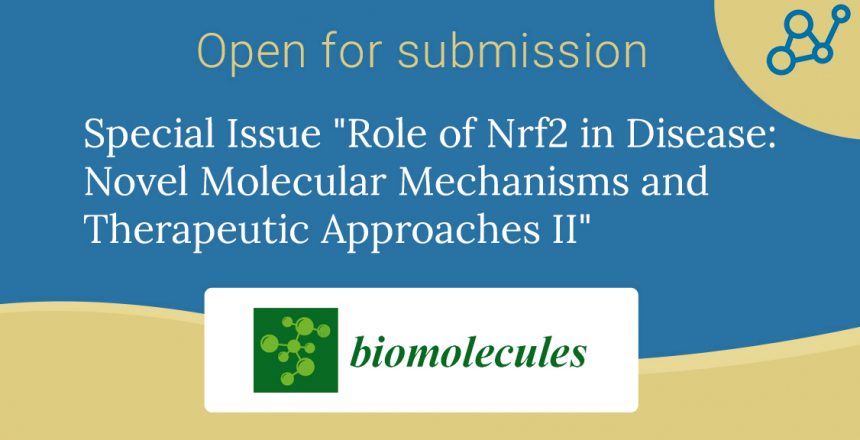Role of Nrf2 in Disease: Novel Molecular Mechanisms and Therapeutic Approaches II
A special issue of Biomolecules (ISSN 2218-273X). This special issue belongs to the section “Cellular Biochemistry”.
Deadline for manuscript submissions: 15 August 2022
Special Issue Editor
Prof. Isabel Lastres-Becker
Guest Editor
Department of Biochemistry, School of Medicine, Universidad Autonoma de Madrid, 28029 Madrid, Spain
Special Issue Information
Dear Colleagues,
Following a very successful first run, we are pleased to announce the launch of a second edition of a Special Issue on the Role of Nrf2 in Disease.
Since it was cloned and characterized, the transcription factor nuclear factor erythroid-2-related factor 2 (Nrf2) has been implicated in processes associated with redox balance; inflammation; proteostasis; and metabolism of lipids, purines, and pentoses, becoming recognized as a pleiotropic transcription factor. For this reason, Nrf2 has received interest as a polyvalent target against various pathologies, where the signaling system of Nrf2 is altered. Under normal conditions, basal Nrf2 levels are low due to its interaction with Kelch-like ECH-associated protein 1 (KEAP1), which binds to and negatively regulates Nrf2. Electrophiles or oxidative stress induce the inactivation of KEAP1 by direct modification of reactive cysteine residues, leading to the release and stabilization of Nrf2, which translocates to the nucleus to bind to the antioxidant response element (ARE) sequence in the promoter regions of Nrf2-dependent genes. This system makes it a good pharmacological target to modulate the activation of Nrf2 and, therefore, its application in various pathologies.
This Special Issue on Nrf2 should, on one hand, emphasize the importance of this transcription factor, and, on the other hand, it should also highlight existing pharmacological components that can modify the Nrf2 signaling pathway. In this regard, we would like to invite review articles that address the above-mentioned issues from different perspectives. Alternatively, any original research papers contributing significantly to Nrf2 signaling progress or advancing our understanding of biological implications are highly welcome.
We also invite researchers in the field and the participants of The COST Action CA20121, Bench to Bedside Transition for Pharmacological regulation of NRF2 in non-communicable diseases (BenBedPhar) to submit their latest research findings to this Special Issue. We look forward to reading your contributions.
Prof. Isabel Lastres-Becker
Guest Editor
You can find all the information about in the button below


